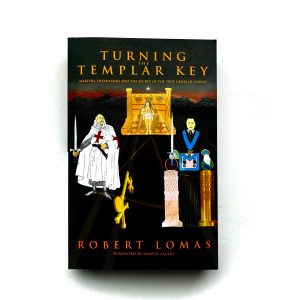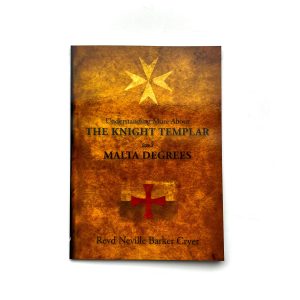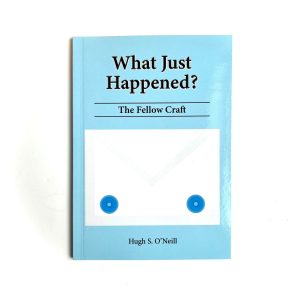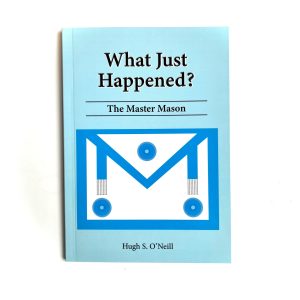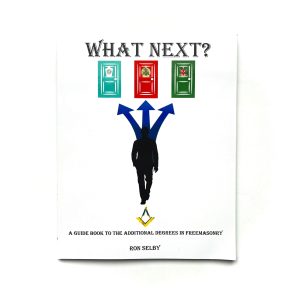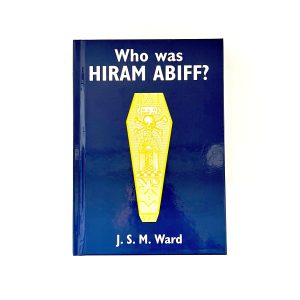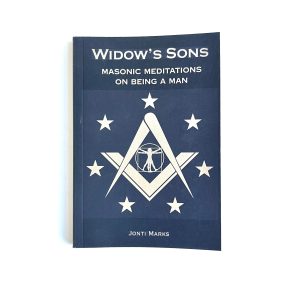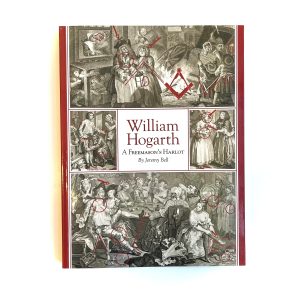Turning The Templar Key
Returning to the unanswered questions of The Hiram Key, best-selling author Robert Lomas, uses newly available information to uncover the roles of Viking Pirate kings, Pretenders to the Crown of Scotland, Custodians of Holy Relics and Political Opportunists to reveal an unexpected story. His quest takes him back to the beginnings of civilization to reveal a startling legacy of religious symbolism and belief which has its roots in the beginnings of a religion of farming, which he reconstructs using computer simulation to explain the latest archo-genetic findings. On Friday 13th Oct 1307 the Knights Templar were struck down in a secret dawn raid by the King of France. Their assets were seized, their members were arrested and they were accused of heresy. So began one of the most mysterious and tenacious conspiracy questions of history. Paperback 388 pages
Understanding More about the Knight Templar & Malta Degrees
Whatever does the word 'Bauseant' mean? Why does the Malta Cross have eight points? Whatever is a Turcopolier and why do knights have an Admiral? Over the last 25 years, whilst becoming Provincial Prior in two areas, the Revd Neville Barker Cryer has produced shorter booklets providing some of the answers to these and other similar questions. So successful have they been in explaining various aspects of the degrees of Knight Templar and of Malta that it was decided to expand the number of subjects dealt with and make them available to any knight in England. Stories about the Knights Templar and their exploits abound; here is something to help Masonic knights become more informed about what they do and say.
What Do You Know about Ritual?
What Do You Know About the Royal Arch?
Ten lectures Why Holy, why Royal, why Arch? Just where is it that we meet? What we may have forgotten about Royal Arch Masonry Some unexplained features of Royal Arch Interesting variation in present Royal Arch ceremonies Is Royal Arch really the Supreme Degree? Old Royal Arch Tracing Boards Discovering the Oxford Ritual Moses, Aholiab and Bezaleel Why did Cyrus let them go?
What Just Happened? The Entered Apprentice
An ordinary day at the office, that was not! You have just experienced the first of several stages in being a Freemason and becoming knowledgeable about Freemasonry, an enlightened view of the world about you in a fresh light and aspects of yourself which perhaps you wouldn't otherwise be fully aware. If you think that's a bit rich and that you haven't discovered anything at all, that's because it takes time to come to certain realisations and is why several steps are required. This booklet will attempt to describe in plain terms what was involved in conferring this first degree, a little of its historical and traditional basis, as well as the ideas presented to you for your contemplation now and in the future. In this small volume, you will not find anything fanciful but rather authoritative explanations backed by footnote references to highly respected sources allowing you to understand the historical context and original intended meaning of every aspect of the ritual. This short guide covers everything you experienced including the working tools tracing boards and different sections of the ritual. Pocket Paperback 60 Printed Pages
What Just Happened? The Fellow Craft
So you have just taken your second step in Freemasonry! The Second or Fellow Craft Degree is arguably, and certainly historically, the most interesting of all because it embraces in a symbolic way the active part of your adult life. In some ways it is similar to your First Degree but why is it so short? In the early days of speculative Freemasonry, in the seventeenth century, there was just one degree, that of making a mason. In the next, eighteenth, century as the order became more widespread, something was wanted to distinguish the very new member from the more experienced. So the Entered Apprentice Degree was created using parts of the making and the truncated remains becoming the Fellow Craft Degree (also called Masters and Fellow-Craft). Lodge records, however, often show both degrees were still conferred one after the other at the same meeting. In this small volume, you will not find anything fanciful but rather authoritative explanations backed by footnote references to highly respected sources allowing you to understand the historical context and original intended meaning of every aspect of the ritual. This short guide covers everything you experienced including the working tools tracing boards and different sections of the ritual. Pocket Paperback 36 Printed Pages
What Just Happened? The Master Mason
Congratulations! You have completed the final step in the three degrees of Craft Freemasonry – but, as you will soon realise, there is more, much more! In the second of these booklets we discovered that not only has the Entered Apprentice Degree borrowed from the Fellow Craft Degree but so also parts of the Third. Recent research strongly indicates the degree of the Master Mason being compiled by early grandees, and one in particular, during the early 1720s. In this booklet, what, how and why that happened will be revealed to you along with several other aspects. For now, it is sufficient to say that this separated ‘Hiramic’ degree came into being sometime before 1730, although there is evidence of aspects being known among speculative Freemasons long before. In this small volume, you will not find anything fanciful but rather authoritative explanations backed by footnote references to highly respected sources allowing you to understand the historical context and original intended meaning of every aspect of the ritual. This short guide covers everything you experienced including the working tools tracing boards and different sections of the ritual. Pocket Paperback 40 Printed Pages
What Next? A Guide to the Additional Degrees in Freemasonry
This book is written to assist those contemplating joining one of the numerous additional degrees in Freemasonry or to aid those who have joined a degree and are looking for more information on the Order that they have joined. It gives a history of the various Degrees and Orders, the requirements for joining them, and the reasons each Degree could be of value as the next step for the candidate to take. Aiming to be comprehensive, What Next really goes into detail, being extensively illustrated, showing the regalia and jewels of the Orders and where possible, there is a non-disclosure description of the ceremonies and various stages of advancement through the order. Up to date information on entry requirement and how to contact the headquarters of the Degrees is also given.
